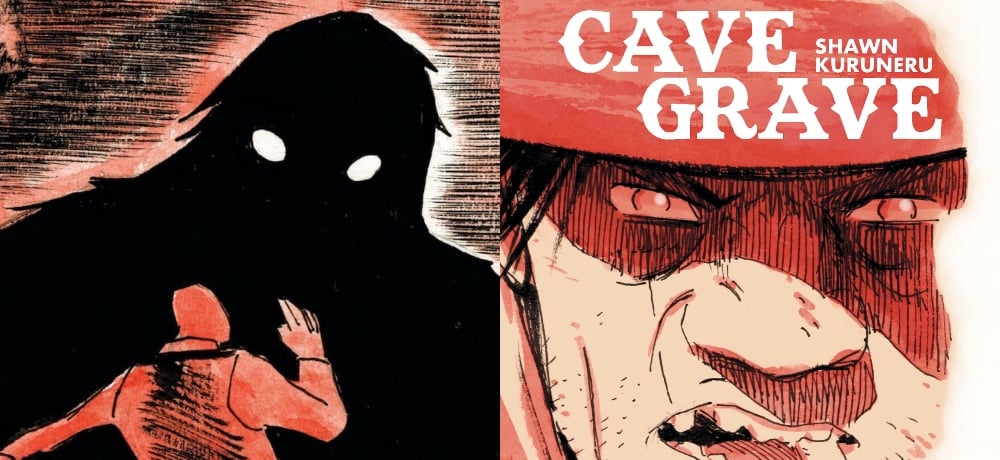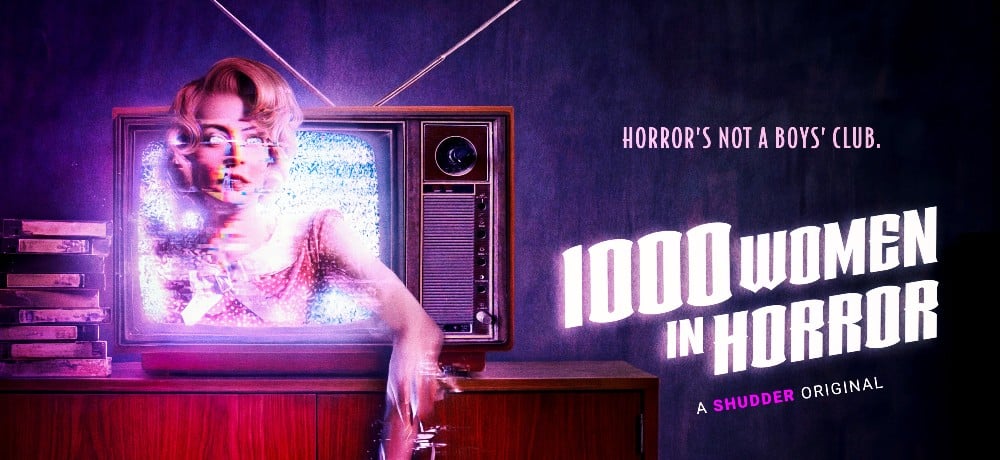





Arriving in theaters everywhere this weekend, Lights Out is set to terrify audiences and give fans a new reason to fear the dark. The film was one of my favorites at this year’s Los Angeles Film Festival, which is why I was eager to catch up with the movie’s producer, Lawrence Grey, at the recent press day to talk about his initial impressions of director David F. Sandberg’s original short film, the process of adapting the concept of Lights Out for the big screen, where they’d like to take a sequel if all goes well with this release, and more.
Written by Eric Heisserer and directed by Sandberg, Lights Out stars Maria Bello, Teresa Palmer, Gabriel Bateman, and Alexander DiPersia.
Congrats on the film, Lawrence. I had a chance to see it at the LA Film Festival and had so much fun with it. I loved how co-star Gabriel Bateman's answers during the Q&A sounded like things that a polished 50-year-old actor would say.
Lawrence Grey: Gabriel is a force of nature [laughs]. In the audition process, you have a lot of these kids that are so polished and they have the script memorized and they can give you that textbook performance, and David didn't want something like that. He wanted someone who can really roll with the punches as they came. He had this very unique idea for the auditions, where he would say to Gabriel or whatever actor, "I'm holding a flashlight. This is your flashlight. Take it from me. It's yours, you deserve it." Gabriel would reach over and grab it and David would pull it back and go, "I'm not giving you this flashlight. It's my flashlight." He'd be like, "No, but it's mine." He'd grab it and David would pull back. "No, it's not." He would torture them.
These kids would then get into actor-y land and only go so far, and Gabriel was just unrelenting, raw, and just had that thing that felt so human. It just blew everyone else away.
Obviously, the whole cast here is integral, and I love the fact that all of these core characters really matter in this story, but is that the toughest struggle, going into a film like this, finding that right kid actor? He's the emotional anchor in many ways at the beginning, and if you don't feel like you're invested in this kid, you could risk losing the audience.
Lawrence Grey: Definitely. Especially when you're making a movie in this genre, bringing in people who are not just reading lines, bringing in people who actually have a real human experience that reflects what the characters are doing in the movie, that is amazingly challenging.
I always find this on all the movies I've made, where you cast a young kid, you audition hundreds and thousands sometimes, and there's always one. There's always a problem because that one kid is so good that he's got other jobs and you have to work around their schedule, but again, it was the rule that proved the rule. Gabriel was heads and tails above anyone else we saw for the movie, and he is brilliant.
I want to go way back to the beginning and talk about when you first watched the short film version of Lights Out. There are a lot of really great genre shorts online, so out of the thousands of videos that are out there, what was it about Lights Out that made you think, "Wow, this could really go somewhere."
Lawrence Grey: I remember I moved into a new office and didn't even have curtains yet. And so I'm watching it on this bright LA morning. I have a pretty high bar for things that scare me, having done 28 Days Later, The Hills Have Eyes (2006), Drag Me to Hell, and those are films that evoked in me a pure, visceral reaction. I'm really hard to scare and David’s short freaked me out. It was like, "Holy shit." I just wanted to meet this director. Is it a gimmick, or is he something more than that? Speaking to David, you could tell that he was someone who was really thoughtful, really smart, had a larger worldview, and that there was deep intelligence and choice in what he was doing.
I was just calling David to be like, "I just want to meet you." I wasn't thinking about an adaptation of Lights Out at that moment. David had already had a vision for what the story was and could be, and those ideas were so amazing. One of the very core, original ideas was about having an adult who has an imaginary friend, which then spiraled into, "How do you do that, because an adult is an adult and has all this credibility?" Then this mental illness thing came in, so it was just driven so much by David and the process of getting to know David and talking to him, and building a team around him to support that vision.
There was never any doubt in your mind that David was going to be at the helm of the feature film, then? I clearly think you made the right choice, but I've heard of people getting the concept out there and studios will be like, "Yeah, we love this idea, but we're going to go with this guy who is more experienced."
Lawrence Grey: You're absolutely right. I would say that's more the rule than the exception, people go, "Here's a piece of intellectual property. It's a short film that has been getting a lot of excitement. Let's go get a big horror director that we all know to go and adapt it." I have zero interest in that way. My producing mandate and philosophy is to support the vision of filmmakers, so to me it was all about, “Does this guy have the vision?” If he doesn't, then I wouldn’t even have anything to do with Lights Out. I don't want to go around trying to put it together in that other way.
There was a vetting process for me with David of getting to know him for a few weeks where we created an outline together. We sent it to our close reps and friends and people we liked, and the phone lit up and everyone was like, "Oh, my God. This is unbelievable." I was like, "All right. We're cooking with gas now. What else can we do?" Then, we pulled in Eric [Heisserer] and James [Wan], and everything happened after that.
Speaking of James, he’s talked a lot this summer about bringing back a respectability to theatrical horror. I grew up on that, so for me, I'm loving this summer more than most because we’re seeing a lot of strong studio horror films. Do you relish this resurgence of theatrical horror, and how important was it to make sure that Lights Out got on the right platform?
Lawrence Grey: I am loving it and I do feel that you're seeing it in waves, but this does feel like the summer where that's happening more than ever. I am hopeful as a fan of the genre and an avid moviegoer of the genre that this summer is going to be setting the pace for more summers to come.
Obviously, as the producer, I have no interest in making a VOD, low-budget horror film and that’s one of the reasons for bringing in Eric to execute a script at a high level. He just wrote a film that is probably going to be nominated for an Oscar. Then, bringing in James Wan, who is the biggest director in the genre, to godfather it—all that helps, but the thing that moved the needle for us was the audience.
We put this movie in front of a test audience, and the movie had record-breaking reactions from the audience that nobody could have imagined. Normally, there is, as you were pointing out, a very arduous green light process, even after you make a film like this, where people have to go to a series of meetings and pitch and bring data. But when they saw that score, I got an email from the head of the studio saying congratulations, and I knew we had something special.
From your experiences and scripts coming across your desk and in your email inbox, what excites you now these days? There's that old adage, "We've seen it all, we've heard it all." What does a project have to do to catch your attention?
Lawrence Grey: It's exactly what you're saying. You have to feel like this is an experience that you've never had before and could never get in another medium. It has to be incredibly distinct and original and it has to be so good. The litmus test, I always say, is you have to be like, "Oh, well somebody else has made that, or somebody else is making that." If your standard is ever, "Oh, this is really good," it's not good enough. Give up right there. Go find something else.
The genesis of most of my projects either comes from an underlying story that is so unique and powerful that I feel like I have to tell it, like a movie we're doing on the Panama Papers scandal now with Steven Soderbergh, and that’s the first thing. Then, there’s the other way, where you have a filmmaker who has an incredibly strong vision and so you want to support that filmmaker in whatever he wants to make. There are lots and lots of ways to generate movies, but those have been the two ways that have worked for me, and have always been the most effective.
One thing us fans know about successful horror movies is that generally a sequel always follows. This film has a very specific story, so if the studio says, "We want another Lights Out," how do you guys come back to this and find something new to do, whether it’s with the family or with the mythology of these entities? Or, is it something you guys haven’t even thought about at this point?
Lawrence Grey: Yeah, we haven't thought about, or gotten into the franchise mentality, on this thing with the studio just yet because we do have to wait and see. But as storytellers, we all couldn't help but mess around with the "where does this go?" idea because there are a lot of fun possibilities. But as you said, this movie is so specific. It covers such a small lens, a keyhole look into this larger universe that we haven’t seen yet. So the organic way that we all got really excited about is expanding that keyhole into a broader universe. The touchstone I would say, if you think about Aliens, that is a little bit about where we'd like to go and our thinking about what we’d love to see in a sequel.
------------
In case you missed them, check out Heather's Los Angeles Film Festival review of Lights Out and her interview with screenwriter Eric Heisserer: